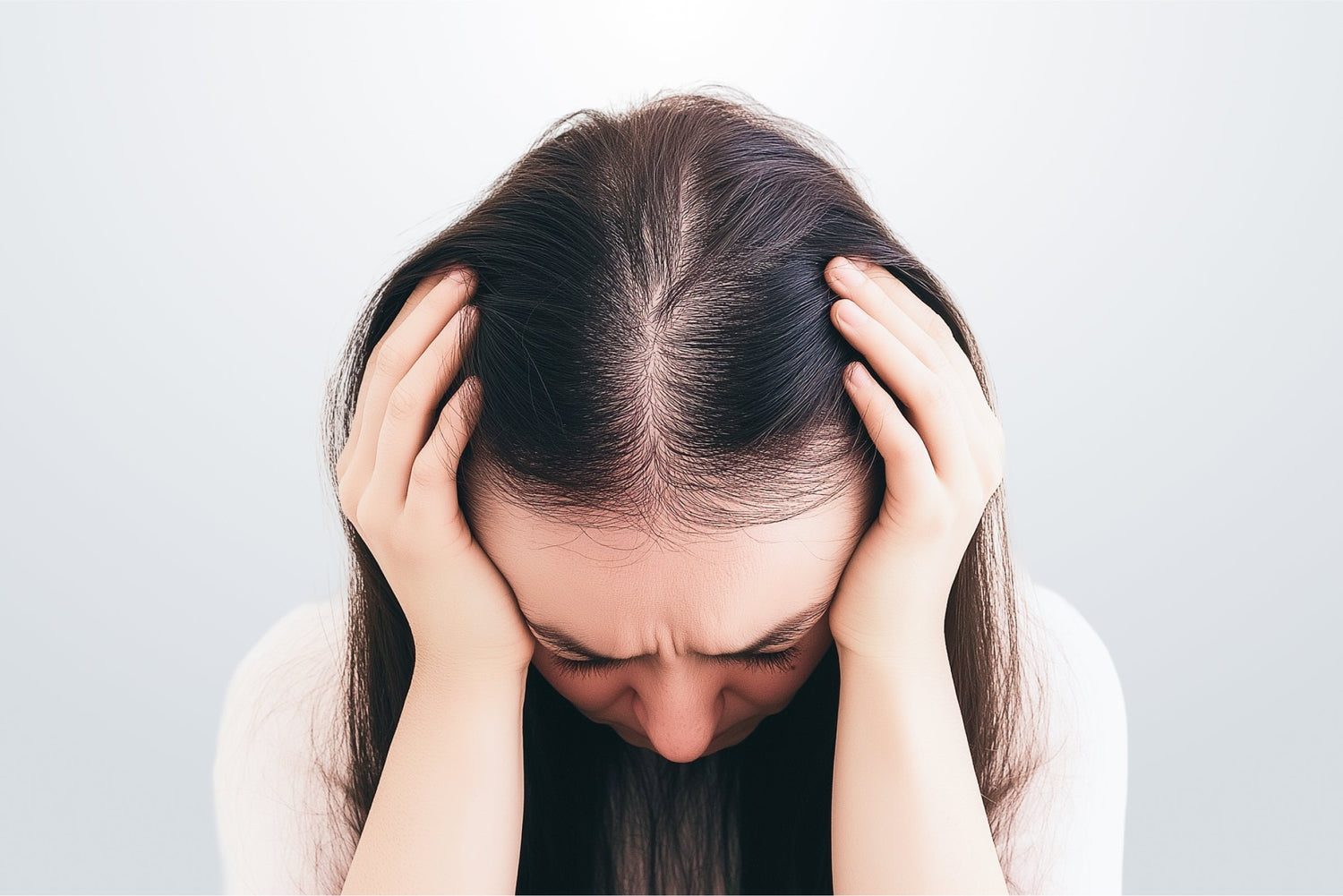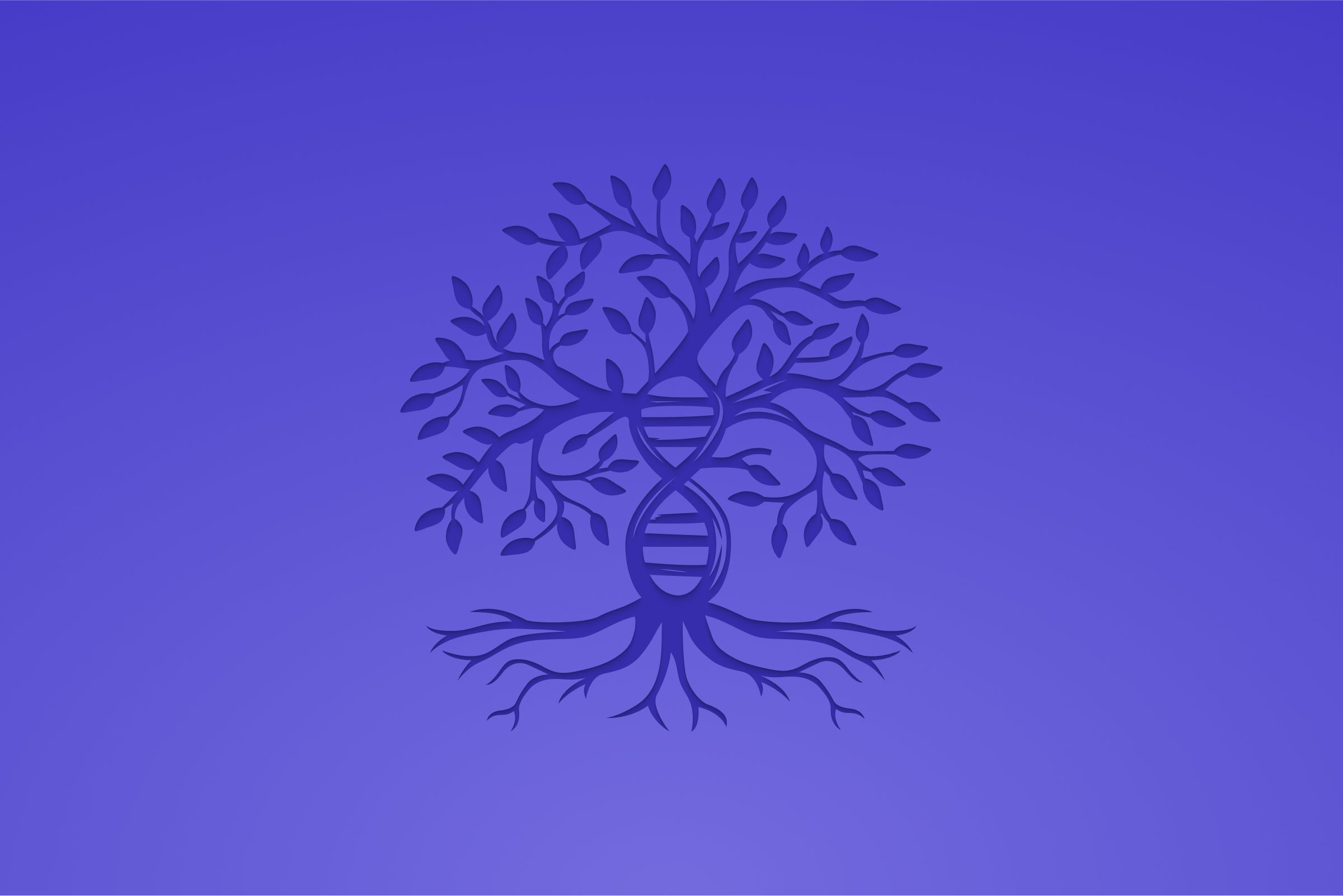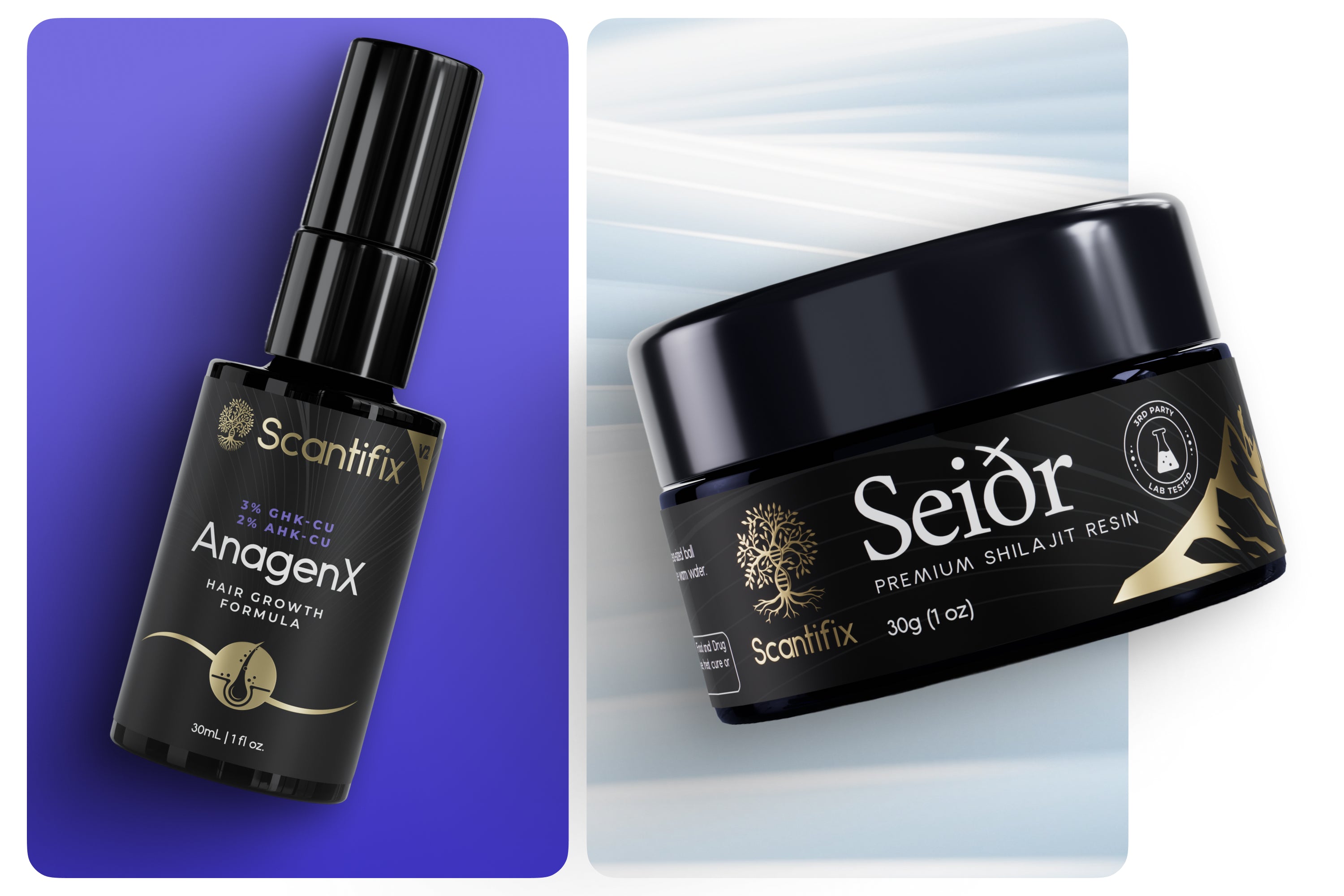Stress. It’s the invisible hand shaping much of our modern existence. From the grind of career deadlines to the quiet anxieties of social media comparison, stress is as much a part of our daily routine as brushing our teeth. And while we often recognize its toll on mental health, digestion, or even our sleep cycles, there’s another area where stress stealthily wreaks havoc—our hair.
We often find ourselves fascinated by how these two worlds collide. When you start connecting the dots, it becomes clear: stress isn’t just metaphorically pulling your hair out. It’s literally doing it.
So, let’s dig into how stress is secretly sabotaging your scalp and what we can do about it.
The science behind stress & hair loss
To understand why stress can be your hair’s worst enemy, we have to zoom into the scalp, a living ecosystem bustling with activity. Each strand of hair grows from a follicle, cycling through stages of growth (anagen), rest (telogen), and shedding (exogen).
When you’re relaxed, this process hums along smoothly. But under chronic stress? Things change.
Stress triggers a hormonal cascade, elevating cortisol—often called the “stress hormone.” High cortisol levels disrupt the hair growth cycle, prematurely pushing hairs from the anagen phase into telogen, where they fall out more easily. The result is a condition called telogen effluvium—sudden, diffuse hair shedding across the scalp.
In our research we've observed that stress-induced hair loss is surprisingly common. Yet, most people don’t connect “rough month at work” or “emotional burnout” to the handfuls of hair they see in the shower drain. But the correlation is there.
Genetic hair loss vs stress
Now, you might ask: Is stress really the culprit? Or is this just the classic case of male pattern baldness (MPB) or female pattern baldness (FPB)?
Good question. Let’s dissect it.
Genetic hair loss, also known as androgenetic alopecia, is largely hereditary and driven by sensitivity to dihydrotestosterone (DHT), a hormone that gradually miniaturizes hair follicles over time. The process is slow and progressive, leading to receding hairlines or thinning crowns in men, and diffuse thinning across the scalp in women.
Stress hair loss, on the other hand, tends to come on suddenly, and it’s reversible once the stressor is removed and the hair cycle normalizes.
Let’s put it this way: while genetics lay the foundation for hair loss, stress can be the accelerant.
Types of stress-linked hair loss
From our researcher’s desk, we see an undeniable pattern: stress tends to be the “hidden variable” in most hair loss equations, worsening whatever underlying issue might already be at play.
Hair thinning vs Stress
Chronic stress, even at low levels, can shrink the growth phase of your hair cycle, leading to gradual thinning. This might not be as dramatic as sudden clumps falling out, but over time, you’ll notice less density, especially along the part line or temples.
Male pattern baldness vs Stress
In men already predisposed to male pattern baldness (MPB), the dynamic of stress hair loss vs MPB becomes crucial. Constant spikes in cortisol and inflammation can accelerate follicle miniaturization, pushing those prone to balding into earlier stages of visible hair loss.
Stress hair loss vs Female pattern baldness
Women’s hair loss is often more diffuse, but stress amplifies it. Combine stress with hormonal fluctuations—such as pregnancy, menopause, or thyroid imbalances—and the hair loss worsens. We’ve seen many cases where stress acts as the tipping point.
Stress hair loss vs Alopecia
Alopecia areata is an autoimmune condition, causing patchy bald spots. Stress doesn’t directly cause alopecia, but it’s well-documented as a trigger for flare-ups. When your immune system is already confused, stress is like throwing gasoline on the fire.
Stress vs gray hair
Ah, the age-old saying: “You’re gonna give me gray hair!” Turns out, it’s not just folklore.
Recent studies show that stress can deplete melanocyte stem cells—the cells responsible for pigmenting your hair. When these cells are damaged or lost, your hair grows back gray or white.
Granted, genetics still largely determine when you go gray, but stress may nudge that timeline forward. From where we stand, we wouldn’t be surprised if future studies identify biomarkers linking chronic stress directly to premature graying.
Managing stress for healthier hair
Here’s the good news: hair loss related to stress is often reversible, if you catch it early and manage the root cause. To help you get started, here are some recommended strategies:
-
Mindfulness & meditation: Lower cortisol, improve blood flow to your scalp.
-
Balanced nutrition: Vitamins like biotin, iron, and zinc are crucial for healthy follicles.
-
Physical activity: Regular exercise helps regulate hormones and reduces systemic inflammation.
-
Sleep hygiene: Hair regenerates while you sleep, so aim for restorative rest.
Stress hair loss solutions
This brings us to interventions. While lifestyle changes are crucial, sometimes they’re not enough on their own.
That’s where solutions like AnagenX, Dome Beamer and DermTifix Pen come in. Built to fortify your scalp’s health, support regrowth and strengthen your hair, Scantifix acts as a frontline defense. By nourishing follicles and promoting a healthier scalp environment, it helps offset the damage stress can cause.
What the data shows
We’ve hinted at it throughout, but now it’s time to lay it out clearly: the link between stress and hair loss is well-established. Here’s what the evidence shows.
• A 2017 study found that 70% of telogen effluvium cases were linked to acute stress events occurring within the past 3 months.
A 2021 study found that individuals under chronic psychological stress showed significantly higher rates of telogen effluvium and diffuse hair shedding compared to unstressed control groups.
• A 2019 study highlighted that stress-induced depletion of melanocyte stem cells could also explain premature graying alongside hair thinning.
• A 2022 meta-analysis showed that stress can exacerbate hair loss conditions like androgenetic alopecia, accelerating progression by as much as 25-30% compared to baseline genetic progression alone.
Final thoughts
Hair loss can be disheartening. It’s tied to vanity, identity, confidence, and self-expression. And stress doesn’t just affect your mental well-being—it physically alters your body, all the way down to the follicular level.
That’s why we believe the connection between stress and hair health can no longer be overlooked. And while we can’t entirely avoid stress in today’s world, we can arm ourselves with knowledge, practical tools, and targeted solutions like AnagenX, Dome Beamer and Hydro Derma Pen - available now in our store.

|
 |
 |
 |
References
1. Chandrashekar, B. S., Madura, C., Vasanth, V., et al. (2017). Telogen Effluvium: A Review. Journal of Clinical and Diagnostic Research, 11(8), WE01-WE03. https://doi.org/10.7860/JCDR/2017/28434.10322
2. Anthonypillai, S., Bhanusali, D., & Silverberg, J. I. (2021). The association between chronic psychological stress and diffuse hair shedding: A case-control study. Journal of the American Academy of Dermatology, 85(5), 1252-1254. https://doi.org/10.1016/j.jaad.2021.06.028
3. Zhang, B., Ma, S., & Wang, J. (2019). Stress-induced depletion of melanocyte stem cells leads to hair graying. Nature, 577(7792), 676–681. https://doi.org/10.1038/s41586-019-1865-3
4. Trüeb, R. M., & Dias, M. F. R. G. (2022). Alopecia in the COVID-19 Era: A Systematic Review. Dermatology and Therapy, 12(1), 41-54. https://doi.org/10.1007/s13555-021-00640-4









Leave a comment
All comments are moderated before being published.
This site is protected by hCaptcha and the hCaptcha Privacy Policy and Terms of Service apply.